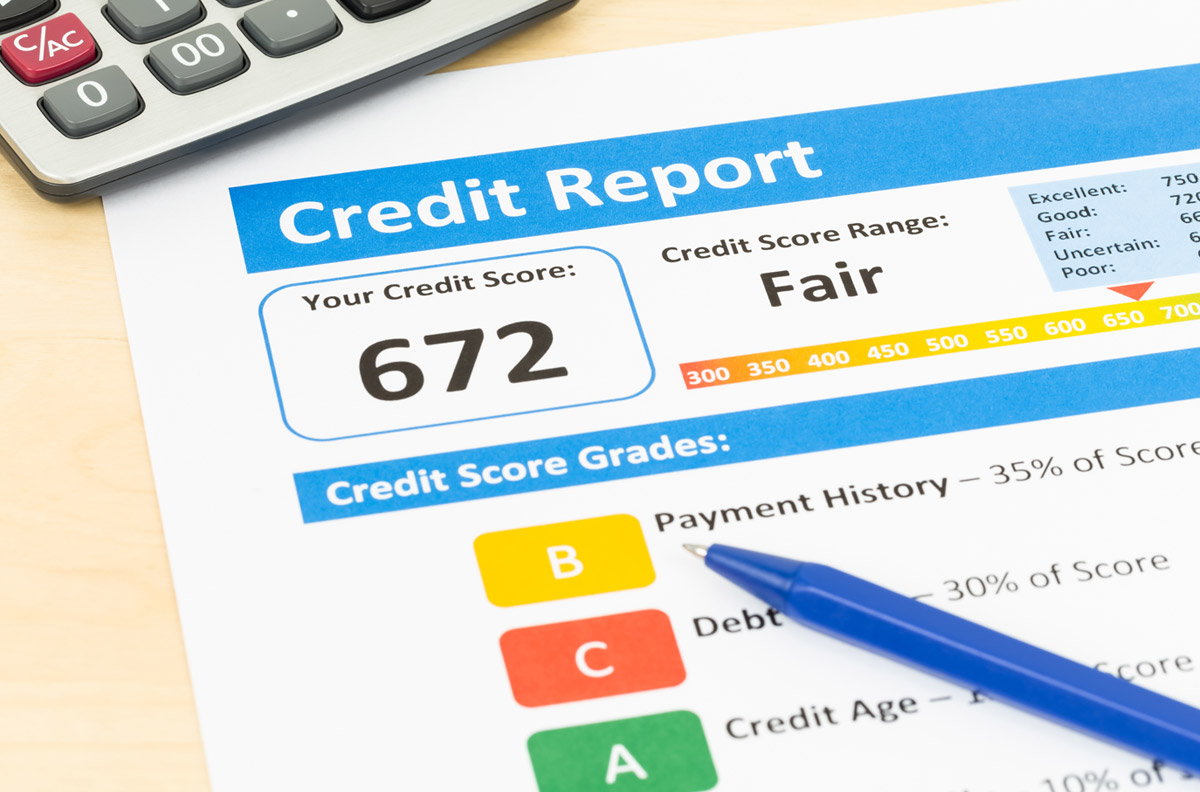You see it when you apply for a loan, in financial apps on your phone and all over. Everyone wants it – but what does it actually mean to have “good credit”? And, how can you get and keep your score where you want it?
More times than not, the score that you see when you look at your credit is your FICO® score. This number is meant to represent your financial health and to let lenders know how reliable you are as a borrower. This score also determines the rate that accompanies the loan or line of credit that you are applying for. When you are looking to make a large purchase your FICO score has the ability to save you thousands and thousands of dollars in interest.
Before we get into possible ways that you can raise your score and potentially save money, let’s take a look at the five areas that make up your credit score:
-
Payment History (35%) - This one speaks for itself! The repayment of your past debt is a major factor in the calculation of credit scores. It typically helps determine future long-term payment behavior. Both revolving credit (i.e. credit cards) and installment loans (i.e. mortgage) are included in payment history calculations, although installment loans take a bit more precedence over revolving credit. This is why one of the best ways to improve or maintain a good score is to make consistent, on-time payments.
-
Amounts Owed (30%) - This category is basically credit utilization, or in other words, the percentage of available credit being used/borrowed. Credit score formulas consider borrowers who constantly reach or exceed their credit limit as a potential risk. This is why it’s a good idea to keep low credit card balances and not overextend your credit limits. (This is one reason that you DO NOT want to close an account! Sometimes it is better to just cut up the card.)
-
Length of Credit History (15%) - This factor is based on the length of time all credit accounts have been open. It also includes the timeframe since an account’s most recent transaction. Newer credit users could have a more difficult time achieving a high score than those who have a credit history since those with a longer credit history have more data on which to base their payment history. (This is another reason that you DO NOT want to close an account if you have had it for a long time and are unsure how it will affect your score!)
-
New Credit (10%) - Today’s higher use of credit factors into FICO® Score calculations. Still, opening several new credit accounts in a short period of time can signify greater risk – especially for borrowers with a short credit history. How you shop for credit and within what timeframe can affect your FICO Score in a number of ways.
-
Credit Mix (10%) - FICO Scores consider the combination of credit cards, retail accounts, installment loans, finance company accounts and mortgage loans. Credit mix is not a crucial factor in determining your FICO Score unless there’s very little other information from which to base a score.
With scores ranging from 300 to 850, you may not even know if your score is good, average or bad. Trust us when we say that you are not alone. It actually isn’t uncommon for someone to not know their score at all. In most cases a scores are generally interpreted by lenders as follows:
- 800-850 - Exceptional
- 740-799 – Very Good
- 670-739 – Good
- 580-669 – Fair
- 300-579 – Very Poor
Boosting Your Score
First, if you’re having issues with your credit usage, take your credit cards out of your wallet, off of your online accounts (like Amazon), and off of your mobile device. Convenience is a great thing, but can be detrimental to your financial health and credit score if you have issues controlling the itch to spend.
Second, check your credit score with each of the three major credit bureaus using annualcreditreport.com. This is a great first step and is the perfect time to review that everything on your credit report belongs there. If you see anything unusual, contact the credit bureau or your financial institution as soon as possible to start working towards resolving the issue.
Third, if you don’t already have a plan of how you are going to pay off your debt, a budget that you can stick to has the power to be your best friend. Your budget should include your debt repayment schedule, fixed and variable expenses, and all income that you have. When you start living your life by a budget you begin to cultivate responsible habits which ultimately lead to you improving your score.
Lastly, if you do not know where to start and don’t want to fight this fight alone, you have a partner that will help you get there! Schedule your FREE Credit Score Analysis with Dover Federal Credit Union! Dover Federal’s Credit Score Analysis program is designed to provide you with a plan that will H.E.L.P. you accomplish four things:
- Help you raise your credit score.
- Eliminate high interest debt.
- Lower your monthly payments.
- Pay off your debt faster.
Contact Dover Federal Credit Union today to see where you stand and to start the journey to giving yourself one of the best gifts possible – a great credit score. We’ll help you get there, wherever that may be!

